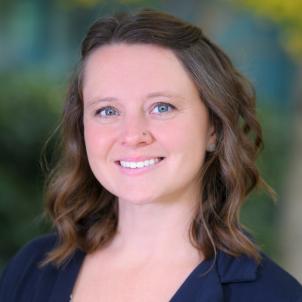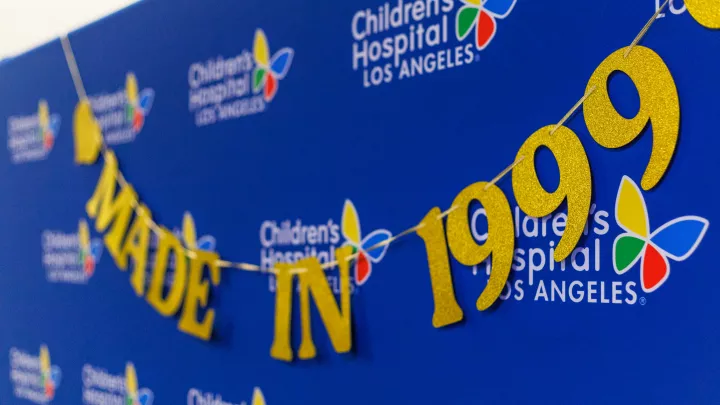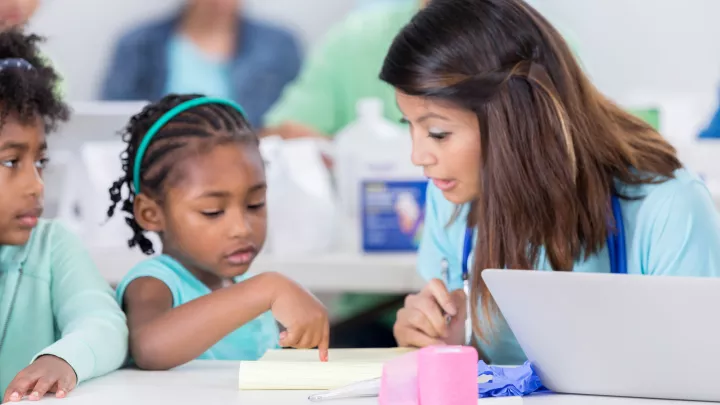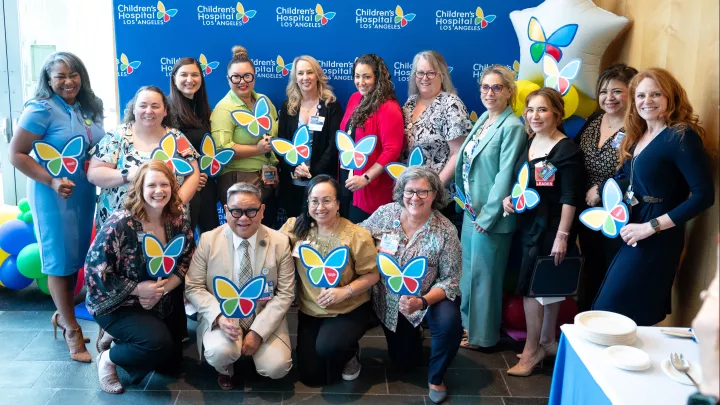
New Fellowship Sets APPs Up for Success in Clinical Care
In May 2025, Children’s Hospital Los Angeles will launch a new fellowship aimed at supporting advanced practice providers (APPs) as they transition to practicing in a pediatric acute care environment such as the one they’ve entered at CHLA.
According to the director of the fellowship, Melanie Reynolds, MS, APRN, NPD-BC, CPNP-AC/PC, the Advanced Practice Provider Pediatric Acute Care Fellowship will support new APPs—specifically, physician assistants and nurse practitioners—who have just gotten out of school or are early in their careers so they are more equipped to succeed as a clinical care provider.
“Somebody who’s newly graduating oftentimes has a lot of imposter syndrome and fear around moving into this new role, so it can be kind of scary,” says Reynolds, Senior Advanced Practice Professional Development Specialist, who oversees the professional development of all the advanced practice providers at CHLA. “For example, you work as a nurse for five years, let's say, then you go back to school and become a nurse practitioner. You're switching from being a nurse to being a provider, and that shift can be very difficult.”
The year-long fellowship will offer participants something to cushion their landing in this new phase of their career.
“This is a supportive program to help them transition in that first year of their clinical practice,” Reynolds says. “It will help get them up and running to be highly functioning new NPs and PAs and feel more confident in their new role.”

Reynolds says she and her team are currently working on developing the curriculum for the fellowship. The program will start with a two-week boot camp consisting strictly of clinical development content without any patient interaction. Next, the new APPs will enter their clinical environments and have eight hours a month set aside as protected learning time in which they will receive didactic content from professionals across CHLA as well as from outside the institution.
“Then when they're in the clinical environment,” Reynolds says, “they're being overseen by APPs who are trained preceptors and are trained in adult-learning techniques.”
Reynolds explains that she hopes this new fellowship makes APPs who are in their first year, or first few years, feel supported by the institution and intent on staying.
“The idea is to create a supportive environment, increase satisfaction, and then, in turn, increase retention.”


